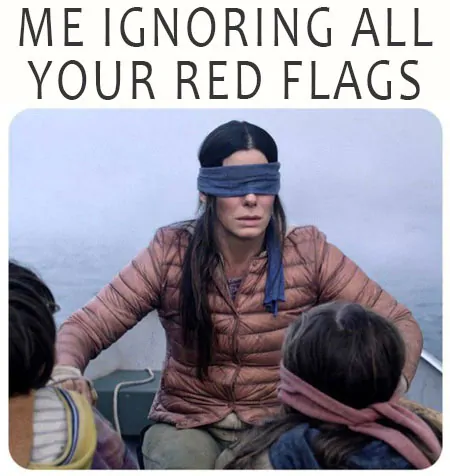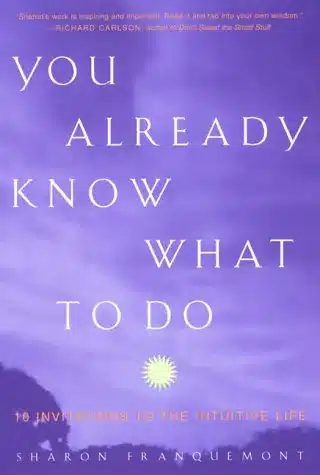If you listen, you will probably hear other mentions this week about trusting your gut, your intuition, your instincts. It’s mentioned on TV, on social media, in TED Talks… people telling others to follow their gut feelings is fairly commonplace because we all have them – and 9 times out of 10, these gut feelings are right. We’re all uniquely special and have our own gifts to bring, but society’s pressures and other people’s fears all work to bury and put out our flames.
Is there a difference between Instinct and Intuition?
Yes! According to DifferenceBetween.com, intuition is our ability to know something without reasoning. Instinct is a natural reaction that occurs without even thinking. For example, instinct sees a ball coming so our body ducks to avoid it, whereas, intuition gives us a feeling something might hit us so we look up and become more alert.
Know that when we talk about gut feelings, we are referring to your natural built-in capabilities of knowing – whether that means action or thoughts and whether there are facts present or not.
So, if we all have this internal navigation system, why do we still make mistakes?
People think of intuition around just danger, and yes that’s part of it, but there are many more situations where instinct can help. Animals listen to their instincts but we often fail to listen to ours – because we overthink and we simply stop listening because of modern conveniences, external pressures, and how we’ve been groomed over time by society.
The truth is that we are so used to being told how to handle nearly every situation that may arise since early childhood and that we can easily Google the best answer for any new predicaments, we have learned to bypass our internal voice. And even if we hear it speak, we allow the rules and expectations of others to override it. We now have a learned response to ignore our gut instead of trusting it.
Trust – the belief that someone or something is reliable, good, honest, effective, etc.
People often tell us what we *should do and how to act and behave in certain ways.
Those are their fears being projected onto us and we have enough of our own fears already, so we don’t need to bring theirs onto us too! When we don’t listen to the advice of others, we have to also not take on and endorse the guilt that we went in our own direction. It’s OK to feel what you feel when you make a shift – acknowledge it and move on knowing you’re doing what is best for YOU!!
We often come into life’s transitions with anxiety about how to live and support ourselves.
Because of the practicalities of life, we stop listening to what we envisioned to be our dream career or job, or even a strong desire to stay home with family. Maybe you desire to go back to school or there is something unfinished you’ve always wanted to finish – or start! Maybe there is an idea you’ve always had and have not pursued because you’ve been listening to feedback from others rather than your intuition. Know that we squelch much of these internal yearnings because of criticism and expectations from outsiders.
Instead, take some time to listen to what you really want and find a tribe of supporters in those areas that bolster your desired direction, like a Facebook group, a local meetup/networking group, or a therapist! We can lean into our instincts or ideas and engage with those dreams at least part of the time – even if our practical life tries to quash them.
This is also true for retirement. There are many practical demands to keep producing but your gut says it’s time to slow down and be with family or simply enjoy nature and relaxation. You don’t have to forgo everything, but stop ignoring your gut and put your big toe in the direction you want to be. Maybe you’ll find something that can supplement the bills and helps you tip into the world you’d rather be living in while it fully manifests itself.
As adults, if we aren’t well-versed in trusting our intuition then we ignore red flags.
In relationships, we are often taught to ignore red flags and instead focus on gestures of peacemaking as love. We make those gestures feel bigger than the red flags themselves, but deep down we know better.
People generally come from a good place where we want to fix things/people/situations. Or we think we can be the person in the other’s life that can be pivotal and that will fix them. But we really can’t change or fix others, so instead, we need to start thinking about our gut feeling when we’re being activated or triggered – what is that saying?
Don’t let all the shiny glittery things like beauty or wealth or gifts – or the honeymoon stage adrenaline – overshadow what you know to be true for your long-term safety. Gather those little pieces of info that don’t sit right and pay attention to them instead of disregarding them. Do not let the gesture that is to make up for an injustice in the relationship erase what happened. Gestures can’t be the solution alone; real work has to be done to get over serious transgressions like manipulation, deceit, cheating, abuse, lying, etc.
The same goes for friendships. If we notice we feel depleted after an interaction with a friend, we may realize we’ve been ignoring a red flag. Do they only ever talk to you when they want something from you? Do they leave your text messages unanswered leaving you to feel like a low priority in their life? How does your gut feel when these things happen? These are big waving red flags and your gut knows it!
So, if a friendship is not reciprocal, draining, overly critical, or unsupportive, then we need to advocate for ourselves with a better symbiotic relationship style or move away from it if it continues to not serve us. If strides can’t be made to improve the relationship dynamics, you can choose to make yourself unavailable to them the next time they reach out and eventually the relationship will end naturally without the need for a big conflict. Or, you can choose to cut ties more directly by telling them that your friendship no longer feels good anymore and you want to part ways – amicably if possible.
As parents, teaching children about intuition and instinct is one of the best things we can do!
We mentioned before that the reason we ignore so many red flags in life is that we have been given all the “answers” already, so we’ve learned this habit of bypassing our gut feelings. But we simply can’t predict every encounter a child is going to have throughout their entire life, so teaching them how to listen and respond to their intuition is superior to all other life lessons.
We actually rob our kids of learning for themselves when we outline all the possible scenarios and tell them what to do in each. Instead, parents should ask more questions (at least one per day), such as…
- What would you do in this situation?
- How do you feel about doing this versus that?
- What would you like to say if there were no repercussions?
- What does your gut tell you is the best thing to do despite what others might be saying/doing?
This teaches them early on to use intuition instead of following a script of preplanned actions.
Once we (as kids or as adults) are able to pay attention to our internal knowing when it arises and then know we can trust that knowledge throughout our life experiences, we can avoid many pitfalls and lead happier, more fulfilled lives.
So, what are some red flags to look out for?
You’re not always going to have a comprehensive list of all situations that will arise in life. So, there is no list here – this is about trusting your own instinct and intuition as things unfold in your own story.
Sharon Franquemont, professor, intuition coach, and author of the insightful book You Already Know What to Do: 10 Invitations to the Intuitive Life, explains that “intuition thrives best as a way of life rather than just a tool one picks up and puts down. Intuition’s value extends far beyond simple problem-solving or decision-making, or creative breakthroughs. Intuition serves our deepest purpose and places us in harmony with what the universe and our soul intend.”
We are so often geared to seek guides and lookup answers from others, that we forget how to trust our own thoughts, and it’s time to change that habit. It’s time to ignore all the practical noise from outside challenges and pressures and just listen to what you really feel deep down.
May the force be with you!
Keep Reading
Want more? Here are some other blog posts you might be interested in.












